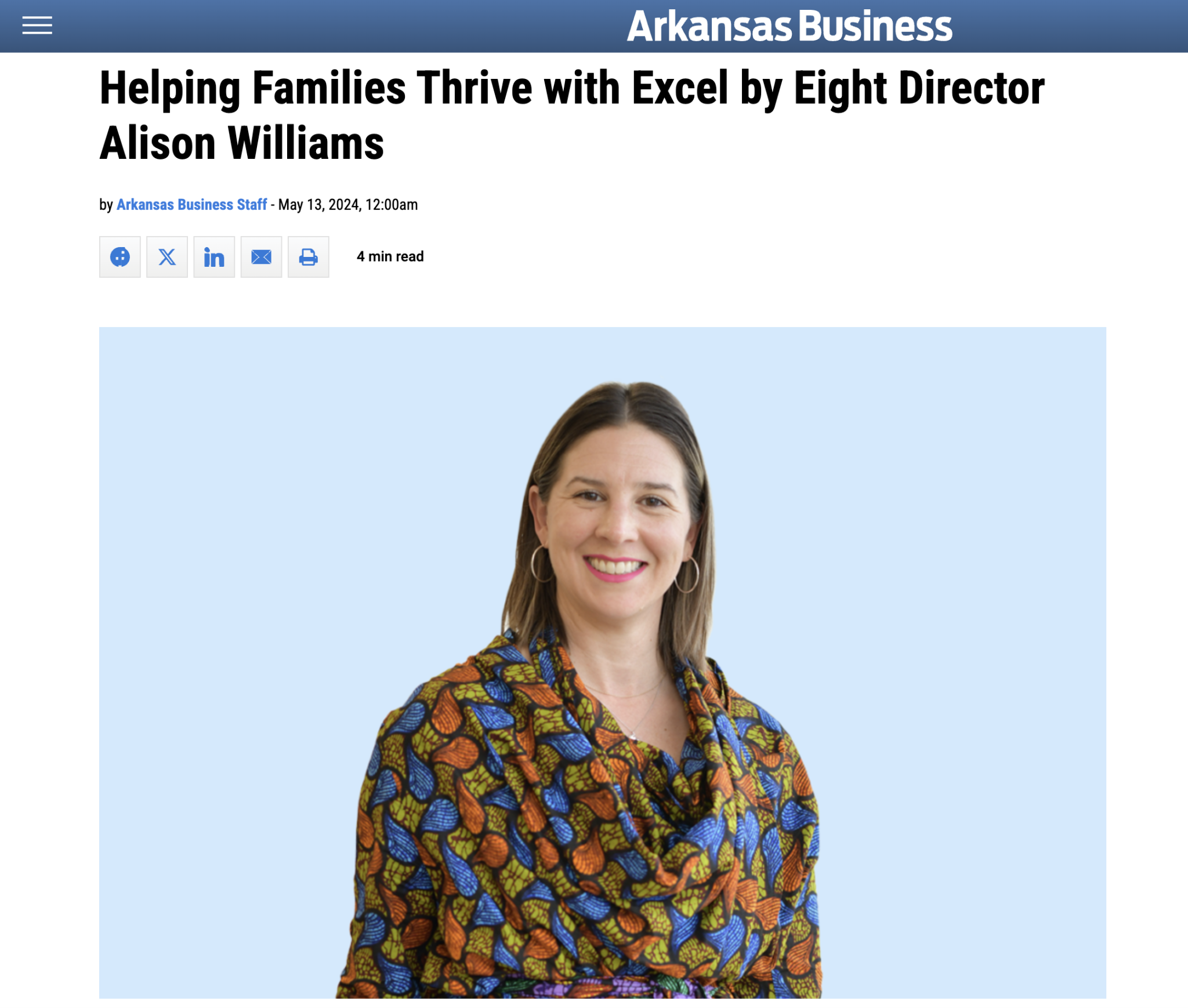“What should Arkansans know about Excel by Eight and its work on child care?
A lack of access to child care has a direct impact on the economic vitality of our state. We have enjoyed very low unemployment for several years, which means as we grow economically, we have to find sources of labor outside of the usual pools. One significant source is single parents — usually mothers — who can’t work because they don’t have access to child care.
What role should businesses play in addressing child care shortcomings?
Business needs to be part of the conversation about why child care continues to be a deterrent to increasing the number of working parents. When unemployment, workforce participation and productivity are simultaneously low, we see the challenges businesses are facing in recruiting and retaining employees. One national report that surveyed several businesses with different types of workers found that offering child care benefits could have up to a 425% return on investment through reduced absenteeism, higher productivity and greater satisfaction at work. One employee story they shared highlighted a working mother’s promotion and her recruitment of two more working parents to her company. She was a champion for her employer because of its willingness to help her solve the difficult challenge of child care.
What is the secret to building a coalition of seemingly disparate businesses or groups?
Meeting members where they are. Every region, industry or business I’ve met in the state, regardless of size, is challenged with hiring. So the coalition is rooted in addressing a pressing need. We work toward that common goal by allowing members to participate in a way that makes the most sense for them. Some members participate to learn about best practices from others, and some are prepared to actively advocate for policies that will ease the burden of child care costs on their employees.
What do you wish more people understood about the way state government operates?
So much of state government operates transparently in the background of our everyday lives. Whether it’s maintaining roads that allow us to get to and from our destinations or developing incentives to spur the growth of small businesses in the state, we all benefit from the hard work of the more than 20,000 dedicated (and largely unsung) Arkansas state government employees.
What was your biggest regret as chief of staff, and what did you learn from it?
I don’t live in regret. My only wish is that we’d had more time to execute on the recommendations of the Women’s Commission. Luckily, we have groups like the Women’s Foundation of Arkansas and Excel by Eight to carry on the work.
What can the state do to better address those same issues?
We have seen great leadership from Gov. Sarah Huckabee Sanders and her administration on this issue already. Moving the office responsible for early childhood education into the Arkansas Department of Education was a tremendous signal about how she views child care and pre-K. And the Office of Early Childhood has regularly enhanced its quality ratings program to encourage providers to increase the quality of their offerings. The business coalition is asking businesses to partner with the state and their employees to tackle the complex challenge of affordable, quality child care in Arkansas. We’ll likely be asking the state to incentivize this partnership in the 2025 legislative session.
How did your work as chief of staff prepare you for this current role?
The work of Governor Hutchinson’s Arkansas Women’s Commission, which I chaired in 2022, led me to this work. The No. 1 recommendation in that report, the first of its kind in 50 years, was to more meaningfully engage the business community in the conversation about child care. In any given week, I’m on the road recruiting new coalition members to do just that. Beyond the work of the Women’s Commission, my nearly seven years as chief of staff gave me an appreciation for how diverse our state is, how important economic growth is to the health and happiness of our citizens, and the importance of the private sector in solving our most difficult workforce challenges.
At Excel by Eight, Alison Williams works with a coalition of businesses and organizations to champion child care as an economic development driver, identifying solutions to address the three critical elements of the child care crisis: accessibility, affordability and quality.
Williams earned a bachelor’s degree in political science from the University of Arkansas, and an MBA from the University of Virginia’s Darden School of Business.”
To read the original Arkansas Business article visit: https://www.arkansasbusiness.com/article/helping-families-thrive-with-excel-by-eight-coalition-director-alison-williams/
